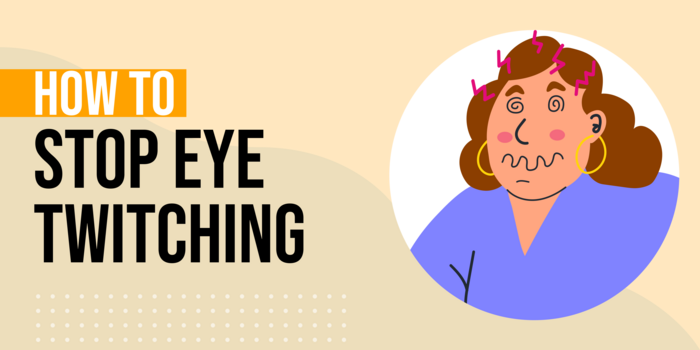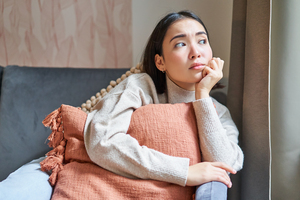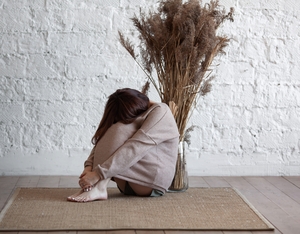Key points
- Eye twitching is a common condition, often caused by factors such as stress, fatigue, caffeine, and eye strain.
- Remedies include reducing stress, limiting caffeine, using warm compresses, and improving sleep quality.
- Persistent eye twitching may indicate an underlying health condition, necessitating medical consultation.
- Lifestyle adjustments like maintaining a regular sleep schedule and reducing stress can help prevent eye twitching.
- If eye twitching is frequent, persistent, affects vision, causes spontaneous eyelid closing, occurs in other facial areas, or is accompanied by dry eyes or other neurological symptoms, it is recommended to seek medical consultation.

Eye twitching is a condition that can occur in one or both eyes and can last for a few seconds or several minutes. Although it is usually harmless, according to the American Academy of Ophthalmology (AAO), eye twitching can be a sign of an underlying health condition or a result of lifestyle factors. In either case, it can be an annoying and frustrating condition. In this article, we’ll explain the causes of eye twitching and tips on how to stop it.
Why is my Eye Twitching?!
Eye twitching is a common condition that occurs when the muscles around the eyelids contract involuntarily, according to the AAO . They note that this can be caused by a number of factors, but in some cases, eye twitching can be a sign of an underlying health condition—such as blepharospasm or hemifacial spasm. While these conditions are rare, they note that it is important to consult a healthcare professional if you experience frequent or prolonged eye twitching.
Common Causes of Eye Twitching
There are several common causes of eye twitching, according to the AAO, including:
- Fatigue
- Stress and anxiety
- Eye strain from prolonged use of digital devices, reading, or driving
- Caffeine
- Dry eyes
- Allergies
- Neurological disorders such as Tourette's syndrome or Parkinson's disease
If you are experiencing frequent or persistent eye twitching, it is important to consult your doctor to rule out any underlying medical conditions, according to the AAO.
Home Remedies for Eye Twitching
If you're experiencing eye twitching, there are several at-home remedies that you can try to alleviate the symptoms.
1. Eye Massages and Warm Compresses
Eye massages and warm compresses can help to relax the muscles around your eyes, which can reduce the frequency and intensity of eye twitching, according to Healthline. To do an eye massage, use your index and middle fingers to gently massage the area around your eyes in a circular motion. To make a warm compress, they recommend soaking a clean washcloth in warm water and applying it to your closed eyes for a few minutes.
2. Over-The-Counter Eye Drops Like Artificial Tears
Over-the-counter eye drops like artificial tears can help to lubricate your eyes and reduce eye twitching, according to Healthline. These drops are especially useful if your eye twitching is caused by dry eyes.
3. Reducing Exposure to Bright Lights, “Blue Light”, and Glare
Reducing your exposure to bright lights and glare can help to reduce eye twitching, according to AdvancedEyeCareCenter.net. If you work on a computer for long periods of time, consider using an anti-glare screen or adjusting the brightness of your screen. Additionally, the AAO recommends following the 20-20-20 rule if you frequently use digital devices like a phone, television, tablet, computer, or gaming device. The 20-20-20 rule is a simple way to reduce eye strain when using digital devices, and includes the following:
- Take a 20-second break every 20 minutes
- Look at something 20 feet away
4. Reduce Stress
Stress and anxiety are common triggers for eye twitching, according to the AAO. If you find that you're frequently stressed or anxious, try to find ways to manage your stress levels. Some effective stress-reducing techniques include:
- Meditation
- Deep breathing exercises
- Yoga
- Regular exercise
- Spending time in nature
- Therapy
5. Avoid Caffeine and Alcohol
Caffeine and alcohol can both trigger eye twitching, according to Medical News Today. They recommend that you do your best to reduce your intake of these substances if you’re suffering from frequent eye twitching.
6. Get Enough Sleep
Lack of sleep or poor-quality sleep can also trigger eye twitching, according to the AAO. To improve your sleep quality, they recommend trying the following:
- Stick to a regular sleep schedule
- Create a relaxing bedtime routine
- Avoid caffeine and alcohol before bedtime
- Make sure your bedroom is quiet, dark, and cool
- Invest in a comfortable mattress and pillows
Lifestyle Changes to Prevent Eye Twitches
If you experience eye twitching frequently, you may be able to reduce its frequency or stop it altogether by making some simple lifestyle adjustments, according to Medical News Today. They recommend the following:
- Going to sleep earlier
- Sleeping and waking at similar times every day, including weekends
- Practicing sleep hygiene
- Switching to decaffeinated drinks
- Reducing activities or habits that create stress, such as overworking
- Seeking support from a therapist for anxiety or high-stress levels
- Avoiding tobacco smoking or drinking alcohol
When to See a Doctor About Eye Twitching
Most cases of eye twitching go away on their own in a short time, according to Medical News Today. However, they recommend that you see a doctor if you experience any of the following symptoms:
- Twitching that keeps occurring for more than a few weeks
- Severe twitching that affects vision
- Spontaneous closing of the eyelids
- Twitching on other parts of the face
- Frequent dry eyes
- Other neurological symptoms that could indicate an underlying condition
Key Takeaways
- Eye twitching is a common condition that can be caused by stress, fatigue, caffeine, and eye strain.
- At-home remedies such as reducing stress, limiting caffeine intake, and using warm compresses can help alleviate eye-twitching symptoms.
- If you experience frequent or prolonged eye twitching, it is important to consult a healthcare professional to rule out any underlying health conditions.
FAQs
What causes eye twitching?
Eye twitching can be caused by various factors including stress, fatigue, caffeine intake, and prolonged use of digital devices.
How can I alleviate eye twitching at home?
At-home remedies include reducing stress, limiting caffeine intake, using warm compresses, and improving your sleep quality.
When should I consult a doctor for eye twitching?
If your eye twitching is frequent, prolonged, severe, or accompanied by other neurological symptoms, you should consult a healthcare professional.
Can lifestyle changes help prevent eye twitching?
Yes, lifestyle adjustments such as maintaining a regular sleep schedule, reducing stress, and limiting caffeine and alcohol intake can help prevent eye twitching.
Is eye twitching a sign of a serious health condition?
While usually harmless, persistent or severe eye twitching can be a sign of an underlying health condition, such as neurological disorders.
Can caffeine and alcohol cause eye twitching?
Yes, consumption of caffeine and alcohol can lead to eye twitching. It is recommended to reduce their intake to prevent this.
Can eye twitching be a sign of a more serious health condition?
Yes, in some cases, eye twitching can be a sign of an underlying health condition, especially if it's accompanied by other neurological symptoms.
Can stress cause eye twitching?
Yes, stress can cause eye twitching. Practicing stress reduction techniques can help manage this.









